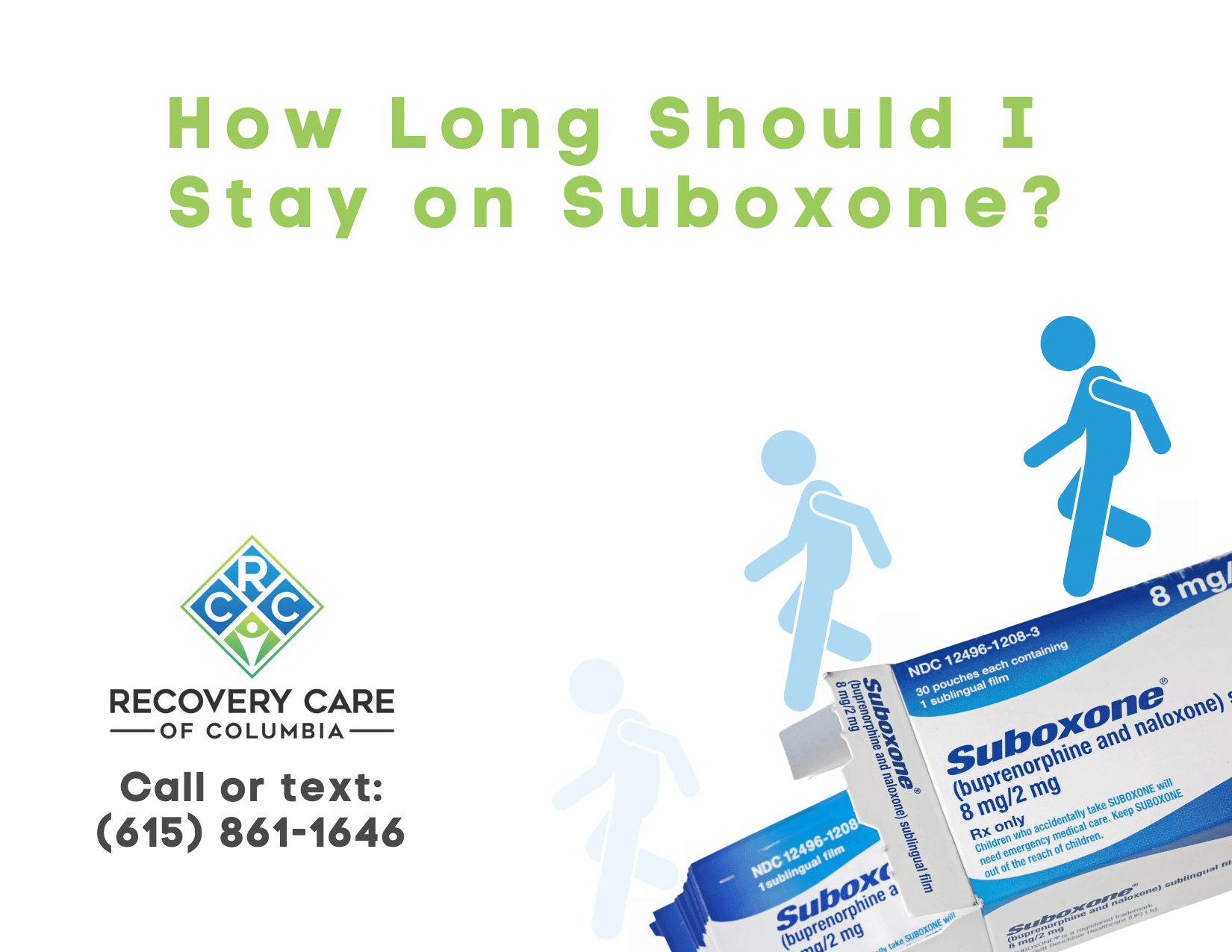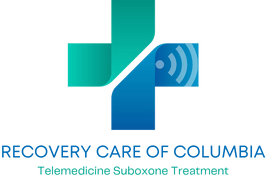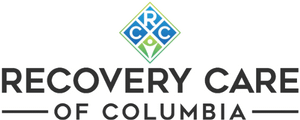How Long Should I Stay on Suboxone?

This is a debatable question that can cause argument from both patients and physicians and the answer varies greatly depending on who you ask. But, there’s really only one right answer.
When is Tapering Off Suboxone Too Soon?
What is all too common is people in addiction treatment thinking “I’ve got this” after only a couple months of successful recovery. This is where a physician really needs to step in and prevent someone from stopping too soon. Life can appear to be good, or even “back to normal” after just one month on Suboxone, but nothing could be further from the truth. Not going through withdrawals and cravings is not the same as life being in balance.
Often times, a person’s life is a mess after living with active addiction for a period of time. Some are homeless, others are high-level executives, some even parenting, which makes life appear normal on the outside. But inside, there’s a whole different story being told.
Some people say “they feel lonely even when in a group of people.” Opioid addiction almost always leads to isolation of one type or another. When you have a problem that you can’t or won’t share with others, it can get very lonely. Especially, when you don’t know what to do about it.
Should a Physician Decide When You Should Taper off Suboxone?
While this used to be the case, it’s no longer the answer. Addiction grew into mainstream medicine thanks to the epidemic, which forced doctors, and even state insurance providers to reconsider how opioid addicted addicts should be medically treated. No disrespect to physicians here, but addiction is a tricky disease that affects the not only the life of the addict, but also the families, friends and employers. Treating opioid addiction is often not a one and done process.
When Should the Addicted Person Decide to Taper off of Suboxone?
Your part in deciding when to taper off Suboxone is critical. Addiction affects the psychological state, as well as the physical state of an opioid-addicted addict. Often anxiety and depression are paired with addiction either as a part of or even the triggers for addictive behavior. This can be much like the chicken and the egg, figuring out which came first and treating them accordingly. The addict plays a huge role in determining when to taper off of Suboxone. But, they’ll need some help.
Why? Life can get good really fast when Suboxone kicks-in and the withdrawals and cravings go away. It can feel like everything got back to normal, so there’s no need to take it anymore. This is common thinking amongst those with clinical depression and personality disorders, too. They start to feel good and no longer believe they require medication to treat their symptoms.
This is why so many people quit Suboxone which is too soon. Life feels good again. However, addiction is a progressive disease. This means that even if stagnant from using opioids, if and when someone does relapse, it’s often much worse than the previous time. Or worse, someone has had some clean time, gets ahold of some oxycodone, heroin, etc, takes the same amount they used to take and overdose. Not realizing, their clean time lowered their tolerance making even smaller doses much more powerful and sometimes fatal.
Beware of the Evil Fentanyl
Fentanyl is everywhere in the news lately, and for good reason: People are dying from fentanyl-laced heroin.
Street heroin is most likely not manufactured in a clean, Osha-approved lab. It’s made underground in whatever setting can be hidden from the DEA. Heroin is made by “backyard chemists”, which are often people who learned how to process heroin from someone else who knows how to process it. Not, from a lab chemist working in a clean environment using strict measurements and precautions. It also means that other drugs can and do get mixed with the heroin to make it stronger, and to “cut” it. Cutting, simply means diluting the heroin to spread it out and make it more profitable to the seller. The preferred drug for cutting heroin is currently fentanyl.
Fentanyl can be up to 100-times stronger than morphine.
Fentanyl is a VERY serious drug. Fentanyl is strong enough to sedate or even kill animals as large as an elephant. It’s no joke. Adding fentanyl to heroin and injecting it has made heroin the most lethal drug on the planet as of late.
“Some heroin dealers brag about how many overdoses their product is responsible for.”
Sicker yet, some heroin dealers brag about how many overdoses their product is responsible for. All, to let potential users think they have the best and/or strongest heroin in town. In reality, it’s not the heroin causing the overdoses, it’s the fentanyl. Unsuspecting heroin users who have been clean for a while can take a 1mg to 2mg does of what they assume is heroin, only to inject a mixture that is sometimes more than 50% fentanyl. This is exactly the reason for the large number of heroin overdoses and deaths in the last 10 years.
“Suboxone itself is not the cure for opioid addiction. It’s a catalyst for therapies.”
Maybe Tapering Off Suboxone Should be a Shared Decision – Patient, Doctor and Therapist
Someone who’s been living with active addiction for 6 years probably isn’t going to be free and clear of relapse after 2 months of Suboxone treatment. Plus, Suboxone itself is not a cure. It’s merely a catalyst for therapies, be it group or intensive one-on-one. Medication-Assisted Treatment (MAT) is a combination effort utilizing Suboxone to help with the physical symptoms (withdrawal and cravings) and therapy. If anything requires throwing the kitchen sink at it for effective treatment, it’s opioid addiction.
The Length of Time Using Opioid Drugs Plays a Role, Too
You can’t rush recovery. For mamy, recovery is a life-long treatment for their addiction(s). If for example, someone was opioid-addicted for a long period of time, it’s probably going to take a reasonable period of time in recovery with Suboxone before they are balanced, happy, healthy, and have their life in good working order.
What I feel is good advice for tapering off of Suboxone is what I’ve heard a few doctors say about it:
“Take your time before you quit your Suboxone therapy program. Let life get balanced again for at least 6 consecutive months before you even consider a Suboxone taper.”
Decision-making during your first year of recovery is very important. This is NOT the right time to get married, buy a house, move to a different state, or make other life decisions if you can avoid them. Many people in group recovery (AA, NA, CA) recommend avoiding all major life-decisions your first year in recovery. You’re going to change quite a bit in this first year, and most likely realize the wake of damage you’ve caused while being addicted. Even the higher-level cases in group recovery will tell you they had no idea the amount of destruction and pain they’ve caused others. Things they just couldn’t see while using.
“We now know that many instances of relapse can be totally avoided by staying on Suboxone and in group therapy for at least a year. There’s science behind Suboxone, therapy, medication-assisted therapy and group recovery – This deserves people’s attention.”
Use knowledge to help you determine how long you should stay on Suboxone.
Suboxone has been around for awhile now, and there’s hard data that you can use to your benefit. Plus, don’t forget – this is your life we’re talking about. I have a saying that I love to share with people in recovery: “Do this right sand you’ll only have to do it once.” Else, you’ll set yourself up for many years of misery and failure by relapsing repeatedly. We now know that many instances of relapse can be totally avoided by staying on Suboxone and in group therapy for at least a year. There’s science behind Suboxone, therapy, medication-assisted therapy and group recovery – This deserves people’s attention.
Use hard data and experience to make your decision to taper off Suboxone
Below, are some simple things you should know that may help you decide to stay on Suboxone a little longer than you think you should. Staying on Suboxone a little longer is much healthier than quitting too soon, relapsing repeatedly and destroying your life (and those friends and family around you) in the process.
- State Insurance Now Pays for Ongoing Addiction Therapies
For a long period of time many state-provided insurance plans would only pay for six months of Suboxone treatment. Sometime around 2018, some states changed their addiction treatment policies and now allow people to stay in recovery indefinitely. They simply require Suboxone doctors to ask their patients every few months if they wish to taper. Ultimately, it is up to the patient to determine when to taper off of Suboxone.
Why the change? The State of TN most likely made this change because so many people were relapsing after only six months of Suboxone treatment. Six months of Suboxone treatment is simply not enough recovery time for many who are addicted to opioids because of many factors, but most likely the rebalancing of chemicals taking up to one year is probably reason #1. People are “still sick” until their body has fully-restored itself chemically. - It Can Take Up to 12 Months for Your Body to Rebalance Chemically After Long-Term Opioid Use
Opioid abuse does a lot more to your body than you might think. Not only does it cause euphoria and make you do things you never thought you’d do to get more. It also depletes the most important chemicals in your body – chemicals your body desperately needs to be happy, balanced and healthy, both physically and emotionally. This is why some people seem a little crazy after they stop abusing opioids like hydrocodone, oxycodone or heroin. Their chemical makeup is out of whack for a while.You have to give your body enough time to create and rebalance these chemicals. Else, you’re simply not healthy enough to stop Suboxone. The brilliance behind Suboxone engineering is that while it virtually eliminates withdrawals and cravings, it also allows your body the space it needs to rebalance itself chemically. - Take Your Opioid Addiction Seriously – This is a Disease, and Requires Ongoing Treatment
Overcoming opioid addiction is often not a “one and done” experience for anyone. Most people who benefit from recovery will (and should) stay in some type of recovery program for the rest of their life. The people who truly “find themselves” in recovery make it priority to remain in recovery, knowing it’s how they must operate if they wish to maintain a happy, fulfilled life, without the desire to abuse drugs and alcohol.
How will I know when it’s time to taper off Suboxone?
As someone once told me: “Stay on Suboxone until you’ve had at least 6-12 consecutive months of substantial life improvements and stability.
Below, is a simple checklist you can use to see if you’re life is in-balance, stable, and ready for a Suboxone taper:
- Family life is stable. No major drama.
- Job or career is going well. Financial issues may still exist as a result of your drug use, but you have a plan of action and are working your way through them.
- Living situation is stable and calm. You have a place to live without fear of eviction.
- You have dependable transportation. Not everyone needs to own a car. Just be sure you have a means for getting to work and back without being late.
- You have begun some type of amends process for the damage you caused while using drugs and alcohol. Removing guilt and shame can be a huge part of healing and also prevent relapse.
- You have a solid support group. 12-step programs can be a fantastic means of learning how to live happily and fulfilled without drugs and alcohol. It’s also where you can meet like-minded people who are facing the same issues and opportunities as you.
If you have any questions or comments, feel free to add your comments below. As always, thank you for reading and best wishes.



